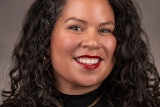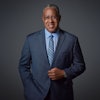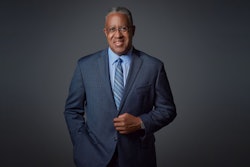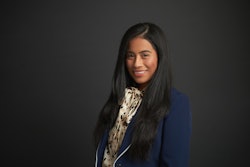In a previous blog post, I wrote about how frustrating it can be to constantly hear that current doctoral students are setting themselves up for failure by pursuing the tenure-track market. Too often, panels, programs, and conversations on Twitter overwhelmingly focus on the decline of positions and negative experiences people have in academia. While these messages may be well-intentioned, rather than being helpful, they leave a lasting impression of uncertainty to graduate students.
That wasn’t the case for my time at NYU Steinhardt’s Faculty First-Look Program—a program that brings together graduate students from across the nation to learn from faculty, post-docs, and administrators at NYU about how to secure a tenure-track position and set yourself up for success once you begin your career as a professor. From the moment I received notification of acceptance, I felt welcomed and wanted.
As a Latinx scholar who was raised Catholic, mentors in academia to me are like the adults in my childhood that were not related but I trusted like family—I’d call them titis and tios (aunts and uncles). They are the mentors who have my best interest in mind and are willing to do what they can to help me succeed, even if it is giving me advice that is hard to take in. I left this program feeling like I gained more titis, tios, and primos (cousins).
Early on during the program, we learned that our individual acceptance into the program were part of a larger initiative to build a pipeline of Faculty First Look fellows that will diversify the professoriate and extend opportunity to future scholars. We were given brochures of former cohorts and we bonded over how our own unique research projects were still connected to the groups’ overall interest to equity and representation. We ended the program committed to keeping each other accountable and cheering each other on.
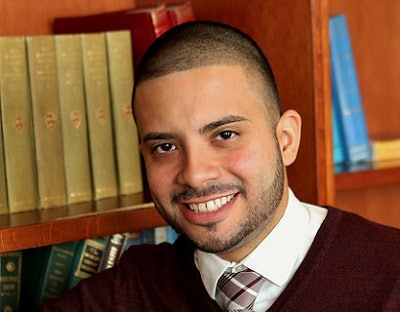 Andrew Martinez
Andrew MartinezThis program exceeded my expectations. While I was aware that we were going to have workshops on C.V.s and cover letters, the faculty recruitment process, and negotiations, it was not the typical “here is a presentation of best practices.” Instead, we received candid advice from the faculty mentors in the program. They were authentic, reassuring, and committed to supporting us beyond the two days we were on NYU’s campus.
The level of thoughtfulness and personalization of the advice we received was exceptional. When it came to learning about negotiations, our speakers were able to coach us on how to think about it based on our individual needs. For example, in response to a question from a participant, we learned how to negotiate offers that consider partners who may be senior scholars and need a job too.
When we discussed how to deal with microaggressions in the classroom, our conversations shifted from thinking about it theoretically to a frank discussion about what we were dealing with at our institutions and how to navigate it.
Emphasized throughout the two days, NYU Steinhardt sees value in this program and hopes that more universities will consider developing their own versions. Dr. Stella Flores, associate dean for faculty development and diversity, spoke with us about why programs like this one are necessary, and our role in it—to not only use the knowledge to better our careers, but also to pay it forward and share the advice to others. I was motivated by Dr. Flores’ sincere and honest thoughts about the faculty pipeline. At the conclusion of the program, the cohort expressed gratitude to the organizers of the program. One fellow pointed out something that we all appreciated. We are accustomed to seeing programs like this having participants herded to where they need to be for the different workshops. During this one, however, Dr. Flores was with us the whole time. How often do you see associate deans spending two whole days connecting with junior scholars, sharing advice, and joining in the program fully with participants? She modeled what I believe can make a difference to a graduate student like me—that there are people like me in academia, and they do genuinely care about our increased representation in these spaces.
The program takes place over two semesters. Next semester, fellows of the program will reconvene to practice job talks and attend more sessions catered to our success as scholars. In a span of two full days of programming, I left NYU feeling reenergized to finish my dissertation and more prepared for the academic job market. This is a remarkable example of how to encourage underrepresented graduate students to pursue careers in academia. NYU Steinhardt’s Faculty First Look Program is helping diversify the academy one cohort at a time, and I can’t wait to connect with everyone again in the Spring.
Andrew Martinez is a Ph.D. candidate at the University of Pennsylvania’s Graduate School of Education and research associate at the Penn Center for Minority Serving Institutions. You can follow him on Twitter @Drewtle
